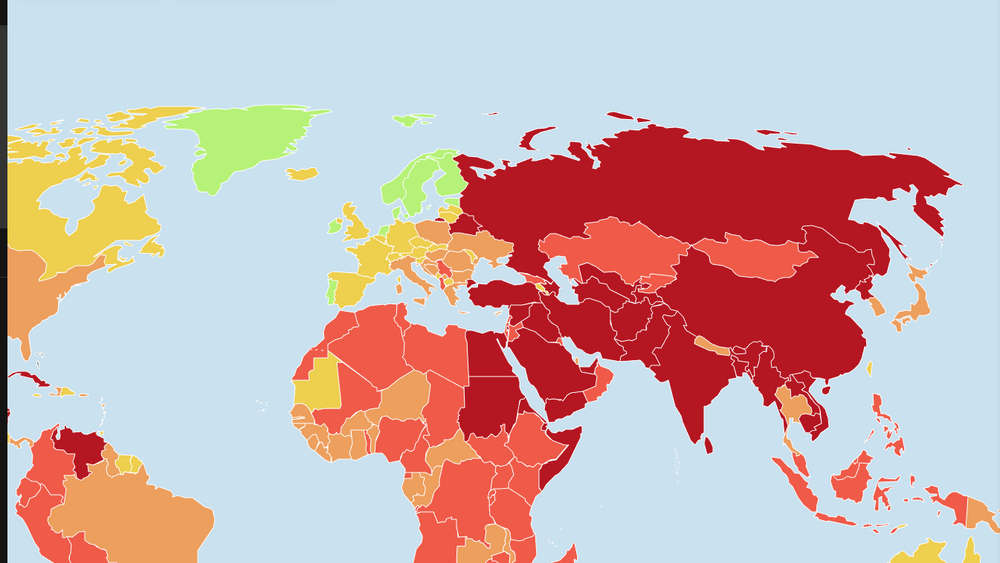site.btaBulgaria Drops from 59th to 70th Place in Reporters Without Borders Index for Media Freedom


Bulgaria has gone down from 59th to 70th place in the Reporters Without Borders index for media freedom, according to data published on the organization's website.
The country's overall index has dropped from 65.32 to 60.78.
"Media freedom is fragile and unstable in the country, which is one of the poorest and most corrupt in the European Union," reads the assessment of the non-governmental organization, which points out that the few independent media in Bulgaria are under pressure.
"Television (BNT, bTV, Nova, etc.) and online media are the two main news sources in a country where the print media are gradually losing its influence. The political affiliation of the members of the Council for Electronic Media negatively affects the editorial independence of the public media, while the independence of privately owned media is threatened by their owners’ interests in other regulated sectors," says the assessment of Reporters Without Borders.
"The intimidation of journalists by politicians and the manipulation of certain media for political purposes are a common practice in Bulgaria. The departure of Prime Minister Boyko Borisov caused a long period of political instability that lessened the political pressure on journalists, although the problem persists," notes the assessment of the political context. At the same time, the legal framework includes "minimum standards for the protection of journalists, in line with the requirements of the European Convention on Human Rights and case-law of the Strasbourg Court."
"At the same time, corruption, the lack of independence and the low effectiveness of the judicial system make the state often powerless vis-a-vis press freedom violations,” Reporters Without Borders emphasizes.
In addition, investigative journalists and independent media are often the target of strategic lawsuits aimed at public participation (also known as SLAPP cases).
The media are often almost entirely dependent on advertising revenue, which is largely controlled by the state. The allocation of national and European public funds by the government is assessed as insufficiently transparent, which privileges media outlets whose editorial line is supportive of the current government, Reporters Without Borders said.
/RY/
news.modal.header
news.modal.text